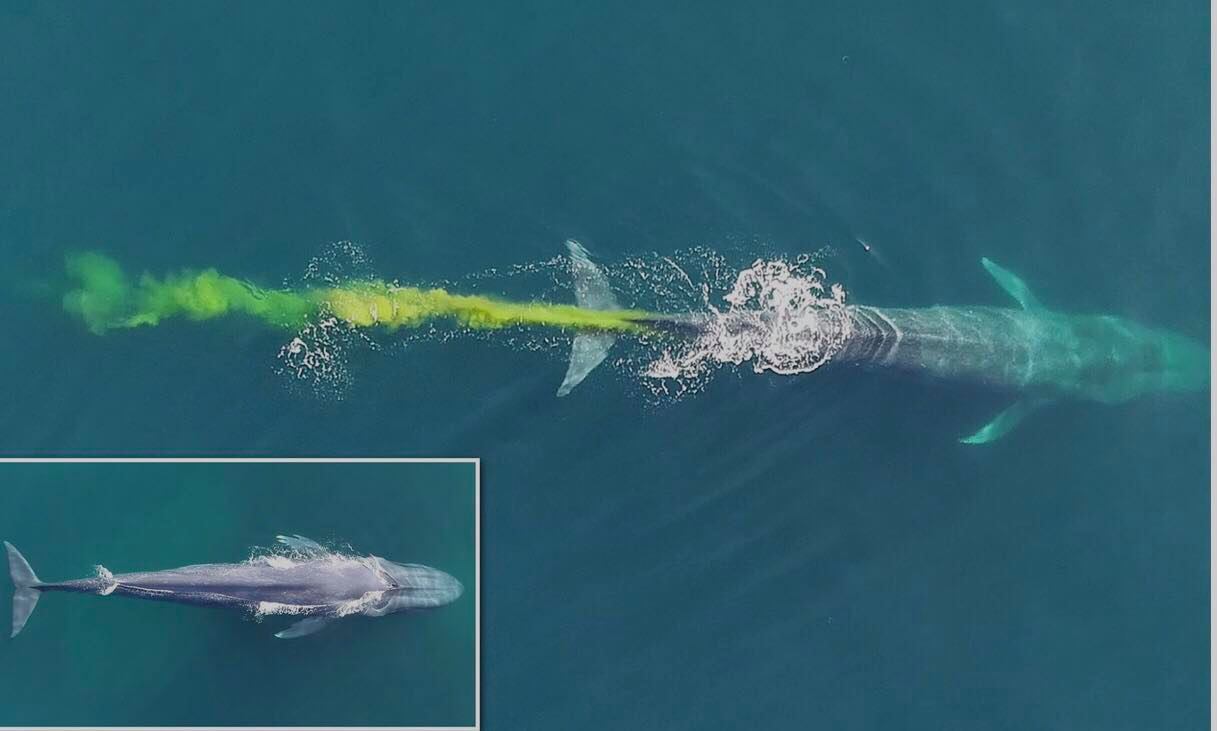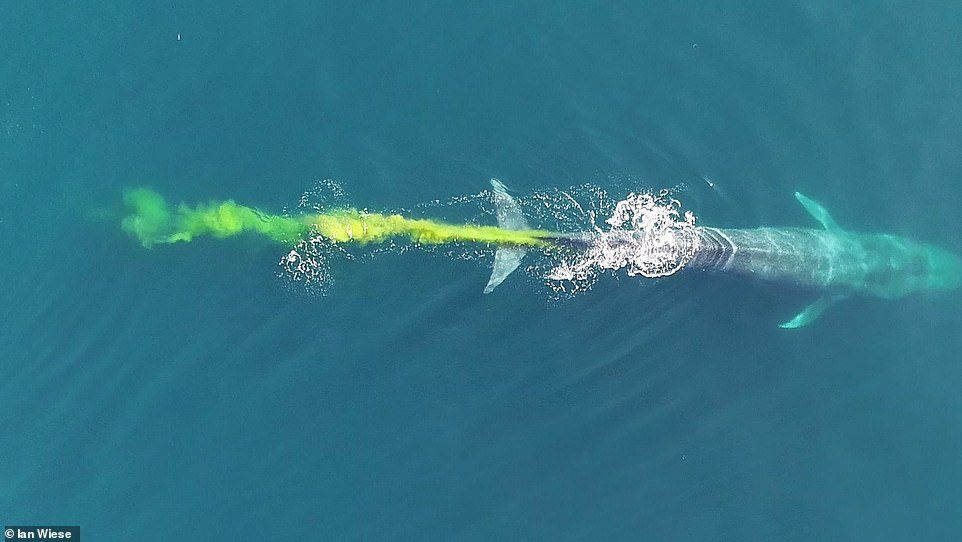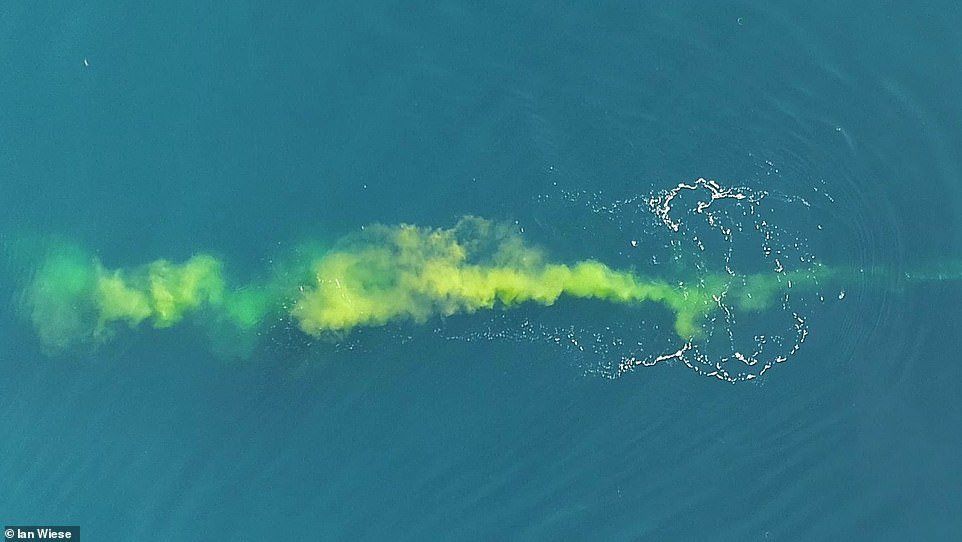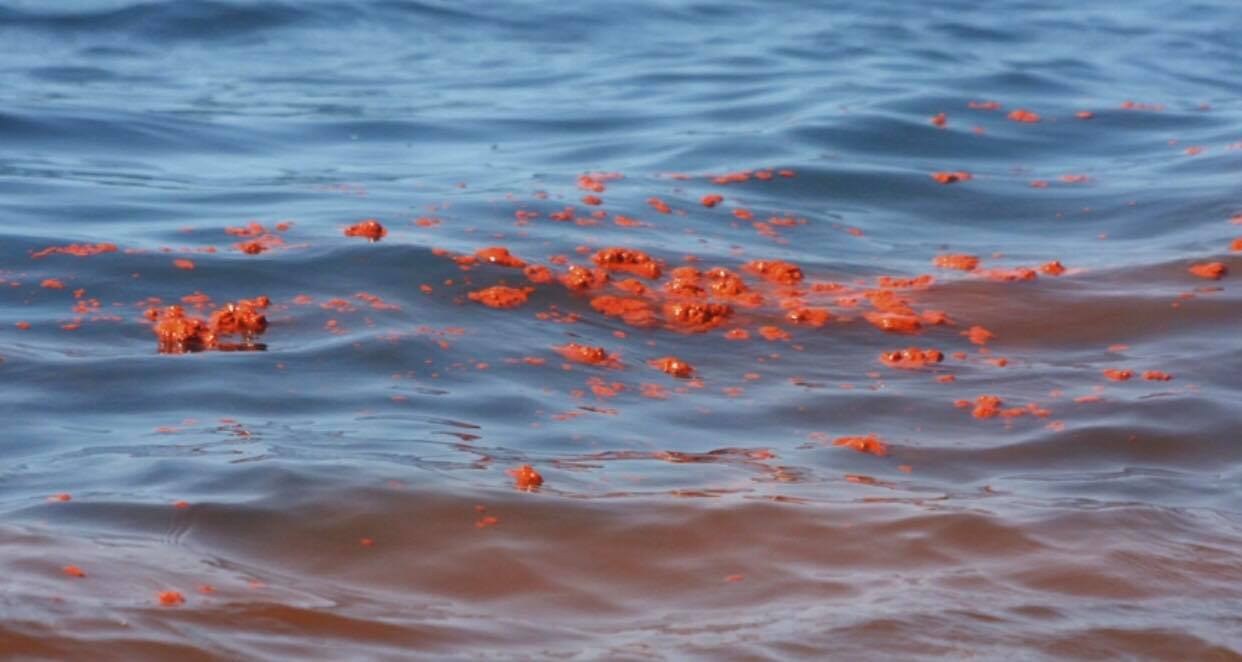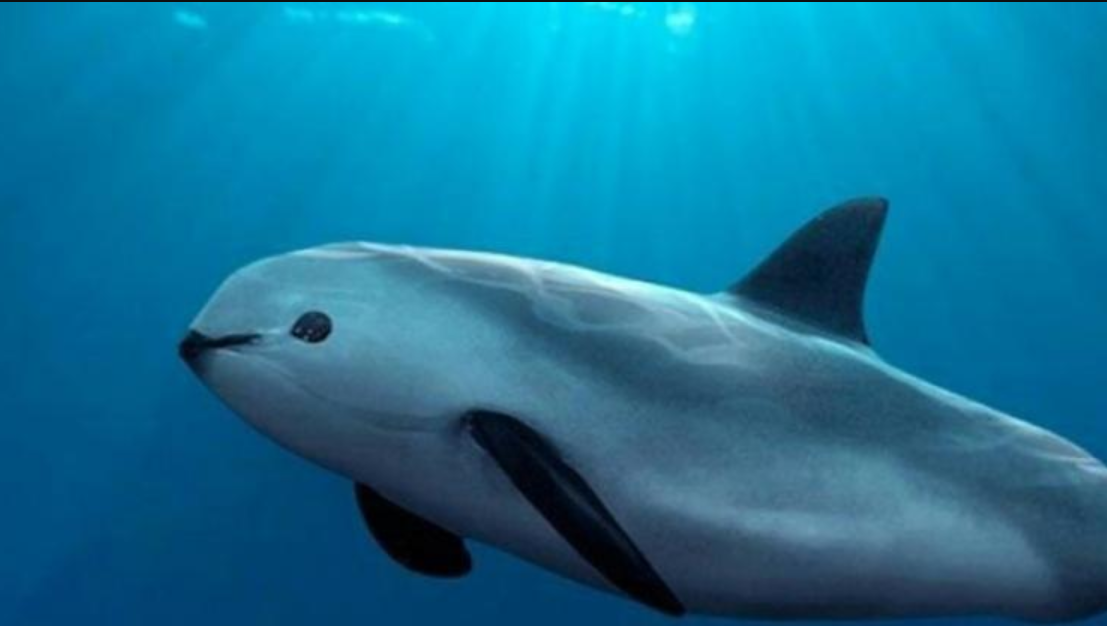Blue whale captured with a drone releasing luminous yellow excrement in the waters off Western Australia.
Researchers and photographers are left stunned after high-resolution drone footage captured a blue whale opening it's bowls and turning the waters off Perth, Western Australia, luminous yellow!
Blue whale releases luminous yellow excrement in the pristine waters off Western Australia. Photo by Ian Weise.
A volunteer research team captured drone footage of the largest animal on Earth, a blue whale ( Balaenoptera musculus)
releasing unusual coloured luminous yellow excrement, in comparison to the general pinky-red coloured poo, which has previously been recorded. The research team who have special permits to record whales with drones within a 200 meter exclusion zone, encountered the whales 2 kilometres offshore when it just started "doing it's business". Photographer and filmmaker Ian Wiese and Rodney Peterson, captured separate events of blue whales defecating in clear waters.
WATCH VIDEO; BLUE WHALE RELEASES LUMINOUS YELLOW EXCREMENT OFF WESTERN AUSTRALIA.
Whale poo has been described as breaking like bread crumbs and smelling like dog's poo, and blue whales can excrete up to 200 litres of poo in one bowl movement.
Curt Jenner of the Western Australia Centre for Whale Research said "the footage captured indicated that the blue whales had been feeding within 100 nautical miles or the last 24 hours".
So why is this poo bright yellow and other whale poo recorded is a more red colour?
Blue whale poo. Source: Flores-Castcante & Gendron (2012).
Suggestions for the unusual colour being circulated among the scientific community include that this blue whale filmed in recent days off the western Australian coast may have been feeding on a different species of krill. Others suggest that the excrement may have been urine.
Blue whales migrate south along the western Australian coastline, with a known hot-spot for sightings at Point Picquet, a three hour boat journey south of Perth. Whales are known to combine their urination with deep dives and long migrations. This intregueing new footage highlights the fact that although blue whales are one of the most endangered animals on the planet, today we are still gaining insights into their behaviour.
When it comes to urine production whales also produce a huge quantity. But how much of the ocean is whale pee? WATCH NOW
Around 2.2. million animal species live in the ocean and it isn't just their home, it's their toilet. Whales are some of the biggest contributors to nutrients in the marine environment providing huge amounts of nitrogen, phosphorus and iron. For example, a single fin whale ( Balaenoptera
physalus
), the second largest whale on Earth, after the blue whale, can produce up to 1,000 litres (267 gallons) of urine every day - enough to fill a 10 X 6 children's swimming pool!
A blue whale, given its larger size, and we assume a whale urinates at least 4 times per day, produces 1200 litres of urine per day, and could have a bladder capacity of 300 litres or 80 gallons.
Whales have specially adapted kidneys that filter as much water out of their urine as possible, leaving highly concentrated urine with a lot of salt and waste to help avoid ammonia toxicity. Interestingly, as a whale takes a deep dive, blood rushes away from the kidneys and whales actually turn these and other organs "off" to better utilise oxygen for muscles needed for swimming, the brain and the heart. During deep dives, toxins in the blood build up and blood toxicity, along with muscular oxygen levels, are among the limiting factors in the length of time a whale can dive. After a deep dive, whales release huge quantities of urine, almost subconsciously as pressure is released.
So the next time you hit the surf, you may be wondering, how much whale pee am I swimming around in? Earths oceans hold 320 million cubic miles of water, compared to that even thousands of gallons of whale urine is just a "drop in the ocean".
All this whale pee and poo doesn't go to waste though, whales provide important nutrients that encourage phytoplankton growth which are the building blocks of the ocean, if not the entire world.
READ MORE HERE:
WHALE POO AND ITS ROLE IN OCEAN HEALTH
Sources:
Flores-Cascante, L., Gordon, D., (2012). Applications of McMaster's technique in live blue whales. Veterinary Record
171:
220.
https://www.dailymail.co.uk/news/article-7696669/Incredible-moment-whale-poos-ocean-turning-water-my...
- © Ocean Research & Conservation Ireland (ORCireland) and www.orcireland.ie , est. 2017. Unauthorized use and/or duplication of this material without express and written permission from this site’s author and/or owner is strictly prohibited. Excerpts and links may be used, provided that full and clear credit is given to Ocean Research & Conservation Ireland and www.orcireland.ie with appropriate and specific direction to the original content.
SHARE THIS ARTICLE






